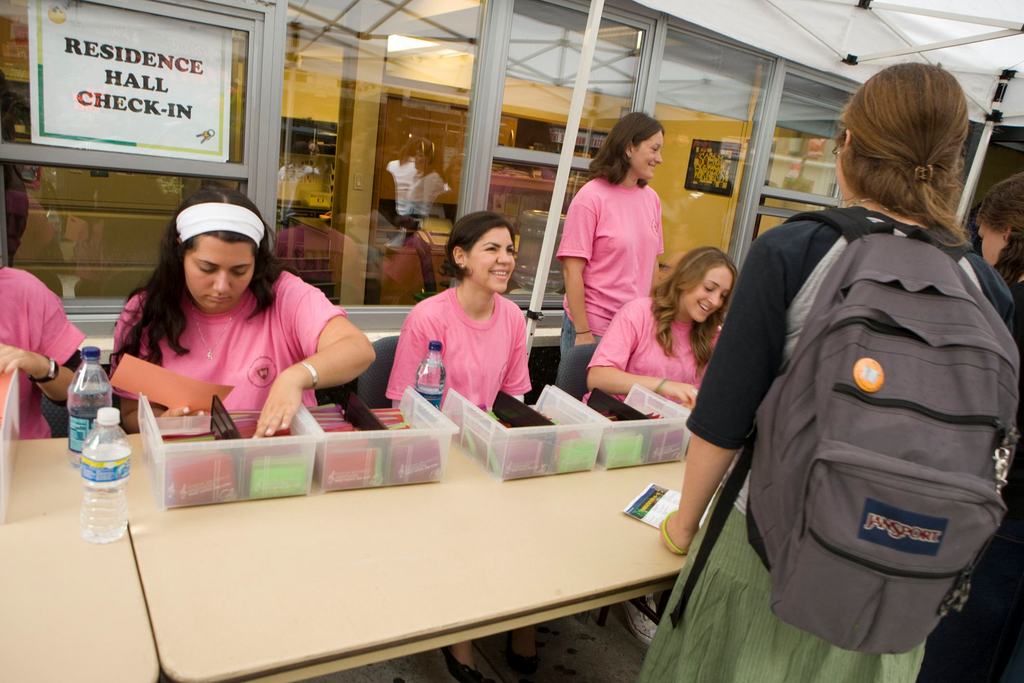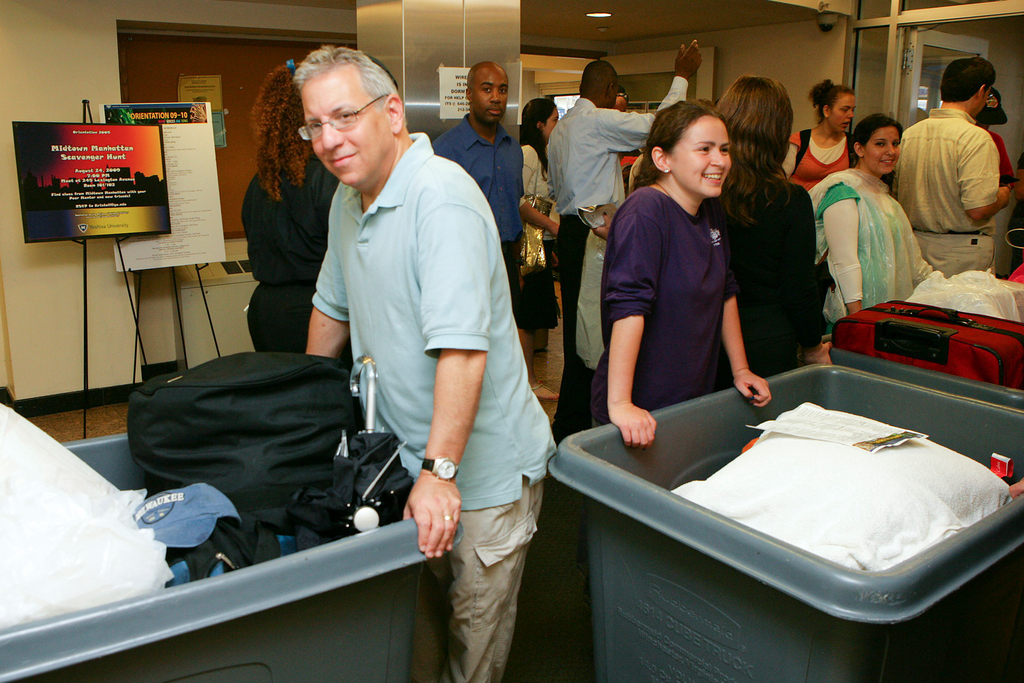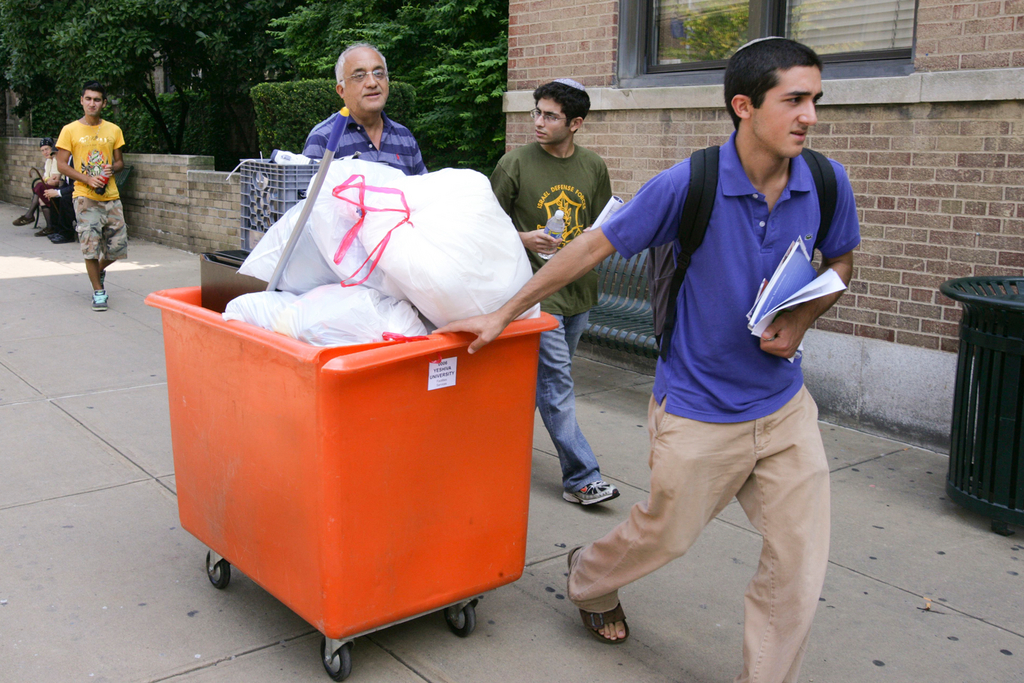Back to school advice from the experts
Posted
By Mayer Fertig
Issue of August 28, 2009 / 8 Elul 5769
After all the anticipation, summer is coming to an end and maybe that’s not such a bad thing. Children who’ve been away at camp are home and parents can enjoy having the whole family beneath one roof again; there are holidays to look forward to and, of course, in no time at all, school will be underway.
Preparation before school can go a long way toward helping students get off to a good start. “As we get closer to the school year take a week to get them reorganized and back on schedule in terms of bedtime,” suggests Dr. Penina Zilberberg, a psychologist in Cedarhurst who specializes in working with young children. “Get them back into the mode of going to sleep at an appropriate time and getting ready for the next day.”
Preparation ahead of time with matters like tutoring may also go a long way, she said. “Pay attention to setting them up at the beginning of school with anything they need to address, issues that we know they have, so they don’t get into the position of falling behind.”
Parents often have a good idea from the previous school year of where a child may need additional help. Even if money is tight, Zilberberg said — maybe especially if money is tight — it pays to act early. “Sometimes when we do something beforehand to address a child’s need we can end up saving money in the long run.”
For parents of children who face challenges being organized, Zilberberg offered two tips: the first, color-coded folders, is relatively inexpensive; the
other costs a little more. “For kids who tend to lose things, maybe it’s an extra set of books so they don’t have to lose things. Rather than struggling, ‘Oh, my gosh, where is this or where is that,’ just keep two sets,” she suggested.
With the beginning of school comes the bane of many a parent’s September-to-June existence: homework. Dr. Michael Salamon, a psychologist in Hewlett at ADC Psychological Services, suggests that parents make homework the child’s responsibility. Period.
“Give them the supplies they need, give them a place to do homework that’s well lit, and then leave the children alone. Parents who sit with their kids tend to make the kids dependent on them and give them the message that they’re not capable of doing the work without the parent around. This is for all grades, all the way up until high school.”
What about a child who refuses to do homework? “Let him or her go to school and experience the consequences,” Salamon suggests. “That’s probably the best motivator you can find. Obviously, in some cases you’ll need to work with the teacher but you should not be in the position of you forcing the child to do it.”
If a child doesn’t know how to do the homework on a consistent basis “there may be a problem on the education side” and a conversation with the teacher is needed, Salamon noted, but he cautions parents not to jump to the conclusion that the teacher is at fault.
“We have parents who have children who ... are struggling for whatever reason and they’ll call the teacher and blame the teacher when really there may be a problem with the child’s abilities,” he said. “Parents need to be involved, but in a realistic way.”
While parents should stay on top of what’s going on in school all year ‘round, the most important time to tune in is about “a month into school, because it’s after the holidays, the routines have finally been settled into and patterns, for good and bad, will start to become evident,” Salamon said.
How should a parent know when a child ought to be evaluated for a learning issue? First, a good teacher will probably notice first, Salamon said. Warning signs may include, “a child who’s reading very slowly; a child who has difficulty describing what they’ve learned in a clear fashion. A child who has problems sitting through a repetition, a child who you ask them about their day and they just sit still. Those would be indications that there may be a problem.”
“At some point every child is going to say something about school. It’s the child who can’t say something about school. You want to ask leading questions: ‘Did you learn anything new in Chumash today? Did you learn anything new in Social Studies today?’ The child who says ‘yeah, but not much’ is a child who likely does not have a problem. He’s just tired and doesn’t want to talk about it - and that’s something we can all relate to. A child who can’t respond to it — who doesn’t have the tools, the ability, the words to talk about what happened in school — that’s a child who needs to be evaluated.”
This school year, more than any other in recent memory, money is a top-of-mind concern for more parents. “I’ve heard parents talk about cutting back on supplies and cutting back on clothing and making sure the old knapsack is still okay — no automatically going out to buy new ones,” Salamon said, “and I’ve heard teachers talk about cutting back on supplies and heard school nurses talk about how they are contributing to purchase supplies for their offices.”
Still, up until sixth or seventh grade, “I think the kids don’t really get most of it,” he said referring to family’s financial situations, and older children “don’t really react that strongly — unless the family is truly in desperate financial straits.“
“I’ve had kids tell me they’re going to try not to spend any money — not in any way that they’re taking on the burden, but they want to be helpful,” Salamon said.
Times when money is tight may also present an opportunity, said Dr. Zilberberg. “There has always been such a focus on doing so many things for our kids to the degree that we become stressed” in dealing with the children themselves, and “the overemphasis tends to get in the way of our being able to respond to our kids’ emotional needs.”
“When finances are low,” Zilberberg suggested, “we have to focus on the important thing, which is spending quality time with our children. Quality time with their parents is what children appreciate the most and is most rewarding to them.”
Report an inappropriate comment
Comments













